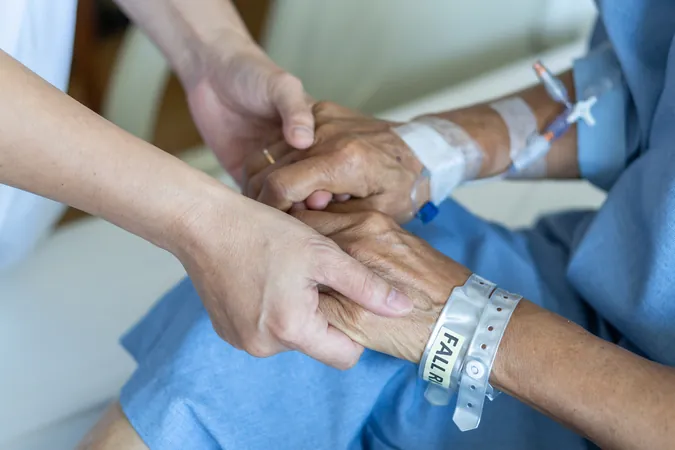
New Study Reveals High-Risk Medications Intensify Frailty and Mortality in Older Cancer Patients
2025-09-16
Author: Nur
Alarming Findings on Medication Risks for Seniors with Cancer
A groundbreaking study utilizing the Geriatric Oncology Potentially Inappropriate Medications scale (GO-PIMs) has uncovered a troubling trend: older adults with cancer are often prescribed high-risk medications that exacerbate frailty and heighten the chances of hospitalization and death. This retrospective cohort study, featured in the JNCCN—Journal of the National Comprehensive Cancer Network, sheds light on a critical issue affecting this vulnerable population.
Research Insights from Harvard and Veterans Affairs
Lead author Dr. Jennifer La from Harvard Medical School and the VA Boston Cooperative Studies Program stresses the urgency of the findings. "Our research focuses on enhancing treatment safety and comfort, particularly for older adults prone to adverse effects," she stated. The study highlights the alarming correlation between chronic medication prescriptions and the potential for serious harm, particularly in patients already battling complex health challenges.
Prevalence of High-Risk Medications in Older Adults with Cancer
Data reveals that a staggering 74% to 80% of older adults with cancer are on multiple prescription medications. Worryingly, this study indicates that 38% of these individuals are prescribed at least one potentially inappropriate medication, most notably selective serotonin reuptake inhibitors. The stakes are high, as each additional risky medication raises the risk of frailty by 66% at the time of cancer diagnosis.
The Urgent Need for Medication Review
Dr. Clark DuMontier, a senior author of the study, advocates for regular reviews of medication lists by oncology teams. He emphasizes the importance of not merely counting medications but also critically evaluating which ones might pose risks. Innovative approaches, like integrating the GO-PIMs scale into electronic health records, could revolutionize how healthcare providers manage prescriptions and patient safety.
Expert Commentary on a Critical Issue
In an insightful editorial, Dr. Mostafa Mohamed of the University of Rochester Medical Center asserts that a cancer diagnosis presents a crucial opportunity to reassess medication safety. He praises the use of the GO-PIMs framework, noting its unique application in a real-world, national setting. He calls for a shift towards everyday integration of such tools to not only identify high-risk medications but also facilitate actionable changes in treatment.
Towards Safer Cancer Care for Seniors
The study advocates for the widespread implementation of GO-PIMs into healthcare systems, especially within the VA's infrastructure. By identifying high-risk medications early, medical professionals can significantly improve patient outcomes and potentially save lives. As researchers continue to pilot this innovative approach, the conversation around medication safety for older cancer patients is more crucial than ever.




 Brasil (PT)
Brasil (PT)
 Canada (EN)
Canada (EN)
 Chile (ES)
Chile (ES)
 Česko (CS)
Česko (CS)
 대한민국 (KO)
대한민국 (KO)
 España (ES)
España (ES)
 France (FR)
France (FR)
 Hong Kong (EN)
Hong Kong (EN)
 Italia (IT)
Italia (IT)
 日本 (JA)
日本 (JA)
 Magyarország (HU)
Magyarország (HU)
 Norge (NO)
Norge (NO)
 Polska (PL)
Polska (PL)
 Schweiz (DE)
Schweiz (DE)
 Singapore (EN)
Singapore (EN)
 Sverige (SV)
Sverige (SV)
 Suomi (FI)
Suomi (FI)
 Türkiye (TR)
Türkiye (TR)
 الإمارات العربية المتحدة (AR)
الإمارات العربية المتحدة (AR)